June 23, 2025 | 15:38 GMT +7
June 23, 2025 | 15:38 GMT +7
Hotline: 0913.378.918
June 23, 2025 | 15:38 GMT +7
Hotline: 0913.378.918
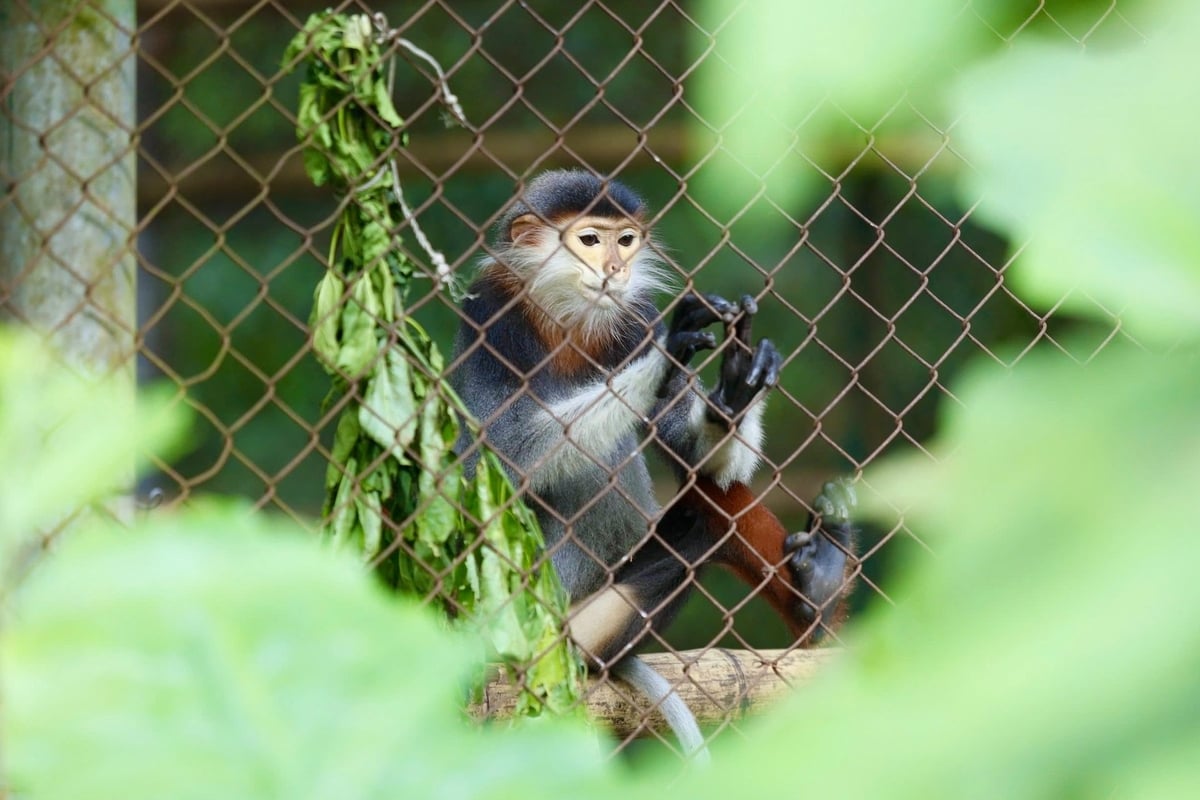
The gray-shanked douc langur - a primate species endemic to Vietnam - is listed as Critically endangered in the IUCN Red List. Photo: Tuong Vy.
In Vietnam’s forest ecosystems, primates play an exceptionally vital role. They are not only maintain plant diversity but also sustain ecological balance and preserve the complex structure of primary forests.
At present, Vietnam boasts a remarkable diversity of primate species, with 25 known species - the highest number recorded in any Southeast Asian country. Among these, several species are endemic, meaning they are found exclusively in specific regions or isolated islands within Vietnam, adding to the country’s unique biodiversity value.
However, this precious biodiversity is currently facing numerous severe threats. Experts warn that Vietnam is home to five primate species included in the list of the world’s 25 most endangered primates, representing a significant 20% of those species teetering on the brink of global extinction. Even more concerning is the fact that approximately 90% of the primate species native to Vietnam are now classified as threatened. This alarming figure underscores the urgent need for effective conservation measures to safeguard these species.
Despite some positive progress in recent years, primate conservation in Vietnam still confronts many challenges. One of the most critical issues is habitat alteration and fragmentation. These are caused by human activities that disrupt and divide the natural habitats of primates, limiting their access to essential food resources and restricting movement and genetic exchange between separate groups. Over time, this isolation can drastically reduce genetic diversity, weakening populations and jeopardizing their long-term survival and adaptability.
Meanwhile, illegal hunting and wildlife trafficking of primates remain persistent problems, though there has been a decline in recent decades. Many rare and valuable species continue to be hunted for various purposes, including as exotic pets, ingredients in traditional medicine, and delicacies in rare culinary practices. These illicit activities are especially prevalent in remote and less accessible areas where law enforcement and monitoring capacities are limited.
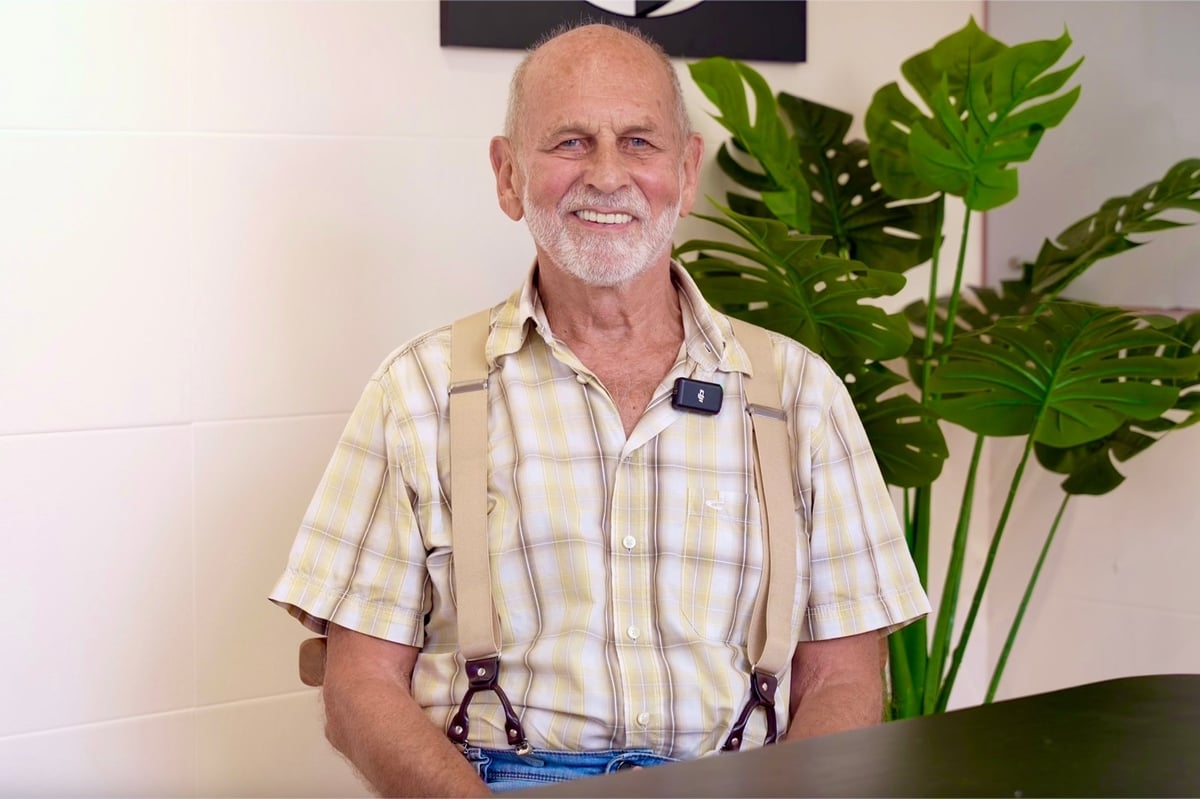
Dr. Tilo Nadler shared insights on the current situation and solutions in primate conservation and rescue efforts. Photo: Tuong Vy.
According to Dr. Tilo Nadler, former Director of the Center for Rescue of Endangered Primates at Cuc Phuong National Park, Ninh Binh, over the past 30 years, illegal primate hunting has decreased due to the decline in primate populations and more effective forest ranger activities. However, wildlife poaching in general remains at a high level.
He stated, “A lack of knowledge about the law can lead to wrongful behaviors.” Dr. Nadler also emphasized that raising public awareness is a key factor in protecting primates and other wildlife species. “In Vietnam, we can only protect nature and wildlife with the support of the public,” he stressed.
This requires not only positive communication about the value of biodiversity but also transparent publication of penalties related to illegal hunting and trafficking of wildlife, thereby creating a deterrent effect in society. “If someone receives a heavy penalty for illegal wildlife trading but no one knows about it, then it does not serve as a deterrent,” he explained.
Dr. Nadler shared that media outlets such as the press should accompany conservation forces not only in advocacy but also in reporting specific court verdicts, contributing to strengthening law enforcement.
Primate conservation is not just the concern of the forestry sector or a few conservation organizations. It is a collective challenge that requires the involvement of the entire society, from policy and legal frameworks to community education and mass media. Because when a primate species disappears, it is not only a biological loss but also the loss of an irreplaceable link in the forest ecosystem.
Translated by Phuong Linh
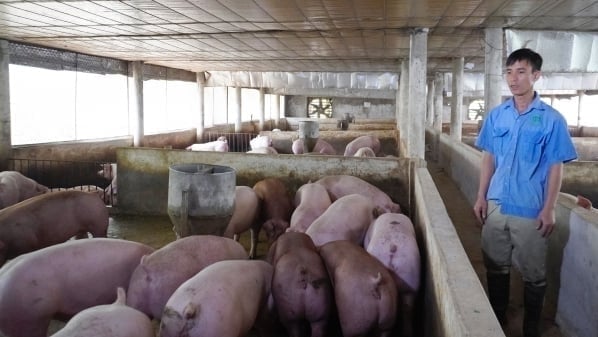
(VAN) Livestock farmers are still hesitant to use the new ASF vaccine products, mostly waiting for responses from large businesses before making a decision.
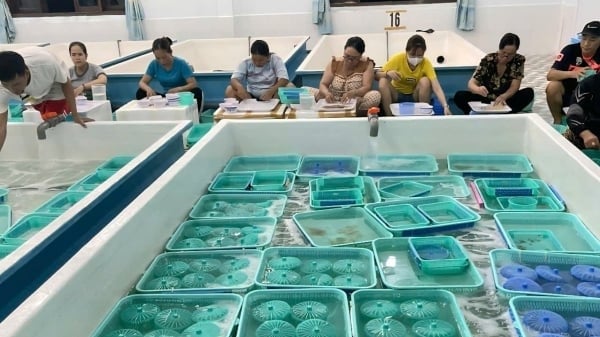
(VAN) Khanh Hoa and Phu Yen continue to strengthen inspection and control of lobster seed circulation in the area, and strictly handle violations.
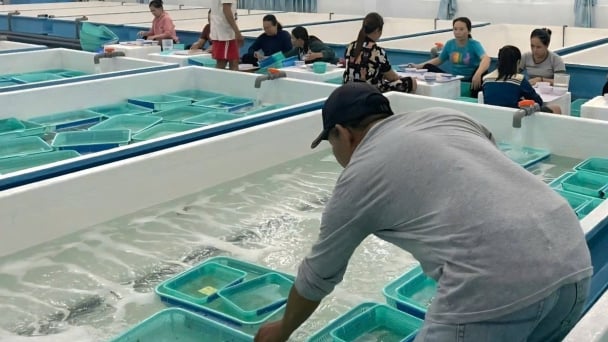
(VAN) Phu Yen and Khanh Hoa recently discovered many batches of lobster seeds of unknown origin. The authorities quickly moved and handled it as per regulations.
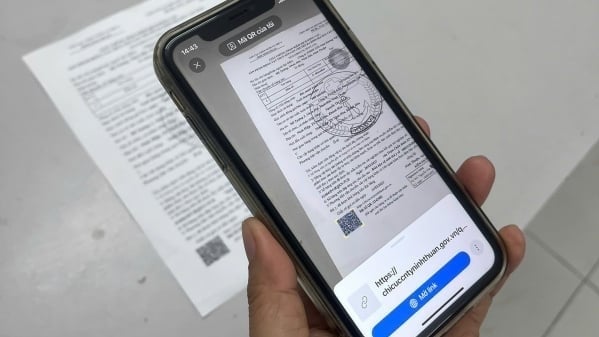
(VAN) Thanks to Ninh Thuans’s digitization of shrimp seed quarantine declarations, the procedures for payment and result reception are simpler and quicker.

(VAN) In Amsterdam, the Netherlands, the 18th Global Dairy Congress 2025 took place from June 18-19, where Vinamilk won many grand awards.
![Turning wind and rain into action: [11] Ten years before storms, after every harvest](https://t.ex-cdn.com/nongnghiepmoitruong.vn/608w/files/news/2025/06/20/z6704423696987_15fd32ffc26d590d204d520c9dac6786-nongnghiep-140922.jpg)
(VAN) With WeatherPlus, every raindrop and every breeze carries a message. And if we learn to listen, the fields will no longer live in fear of the weather.